Pakistan Coalition for Education
Pakistan Coalition for Education (PCE) was formed in 2005 and was registered as the Society for Access to Quality Education (SAQE) in 2010 under the Voluntary Social Welfare Agencies Ordinance of 1961. It has a network of over 200 members – CBOs, NGOs, CSOs, experts, academia, parents, teachers, etc., in 65 districts (1000 Union Councils) across Pakistan. PCE has been engaged in policy advocacy for over 16 years and has also been collaborating with other networks, CSOs, and UN organizations on women empowerment, peace, human rights, child rights, and rights of PWDs, among others.
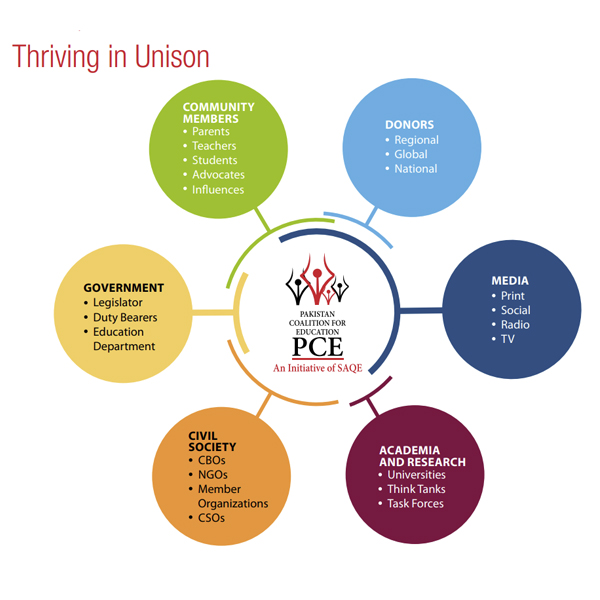
Vision
Education for all children and youth in Pakistan that nurtures them to become critical thinkers and conscientious citizens promoting harmony, equality, democracy, and justice.
Mission
To work towards ensuring free quality education for all, irrespective of gender, religion, and class differences, that promotes peace, tolerance, democracy, and justice and safeguards diversity.
Focus Areas

Girls Education
Girls' Education in Pakistan remains dismal and as a result of this, female literacy, retention and learning outcomes for females in schools remain poor. PCE advocates for increased prioritization of female education in Pakistan, focusing on access to quality education.

Right to Education - RTE
PCE advocates for the enforcement of Article 25 A, the Right to Education, within the constitution that obligates the state to provide free and compulsory education to children age 5-16 years. The Right to Education was added to the Constitution as part of the 18th Constitutional Amendment in 2010.

Education Financing
Pakistan's education spending is currently the lowest in South Asia, with only 2.5% of GDP allocated to education. PCE strongly advocates for an increase in education budget to at least 4% of the GDP. It also lobbies for transparency and accountability in the allocation and utilization of education budget.
Approach
Since its inception, PCE has been an emblem for bringing together diverse voices on education from across the spectrum. Its two-pronged approach entails:
| 1 | Working towards making government bodies and legislative processes efficient, transparent, and responsive. |
| 2 | Creating awareness and building capacities of civil society groups and citizens about their constitutional rights and key tools for advocacy. The goal is to positively influence societal attitudes and policy processes that otherwise serve as barriers for the realization of RTE, especially for women, PWDs, OOSC, transgender, and religious and ethnic minorities. |
Multi-Stakeholder Engagement
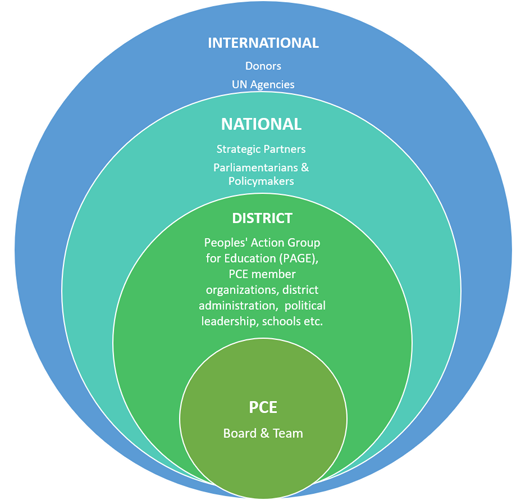
Local and National Level
| 1 | At the district and national level, PCE leverages its network of member organizations and PAGE (People’s Action Group on Education) in 12 districts to strengthen local advocacy, engage key stakeholders and empower marginalized groups through knowledge sharing and capacity-building efforts. |
| 2 | PCE builds strategic partnerships with CSOs working with marginalized groups to strengthen its call for gender-responsive and inclusive education for all. |
| 3 | PCE engages with the Ministry of Planning, Development, and other initiatives (MoPD) to share civil society perspectives in relation to developing the VNR report. |
| 4 | PCE, along with other CSOs and parliamentarians, formed the Education Parliamentarians Caucus (EPC), a platform bringing together members of National and Provincial Assemblies and Senate for evidence-informed policymaking for the education sector. |

Leadership Skills and Life Skills Training for Young Girls

Policy Discussion on the Education Financing Agenda by Inviting




Regional and Global Level
At the regional and global level, PCE will work closely with The Asia South Pacific Association for Basic and Adult Education (ASPBAE) and the Global Coalition for Education (GCE) in building national capacities for effective advocacy on SDG4, education within the SDGs advocacy, and on the new GPE model. These learning collaboratives will also be leveraged to work on issues of education financing strategies and privatization of education
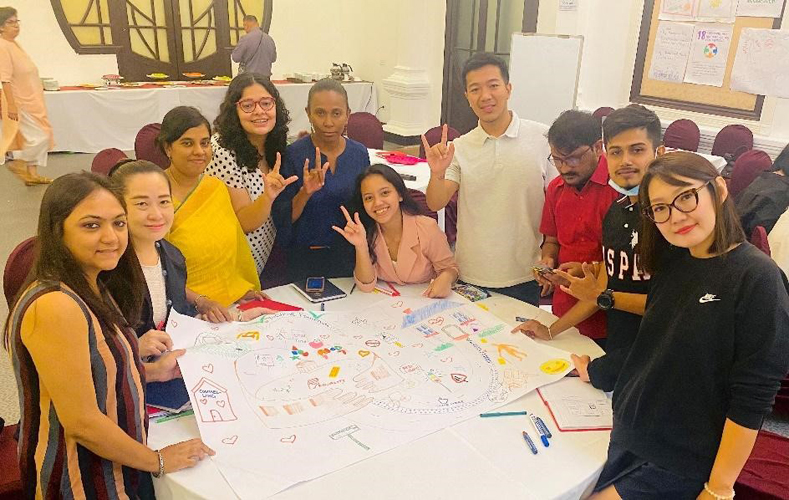
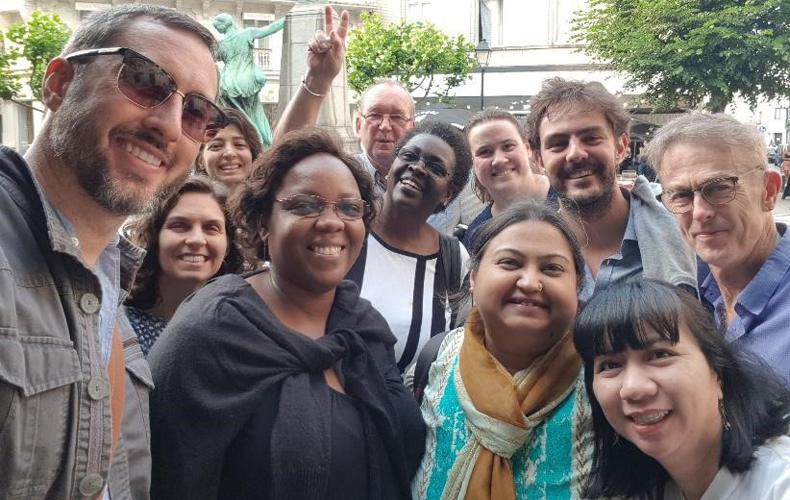
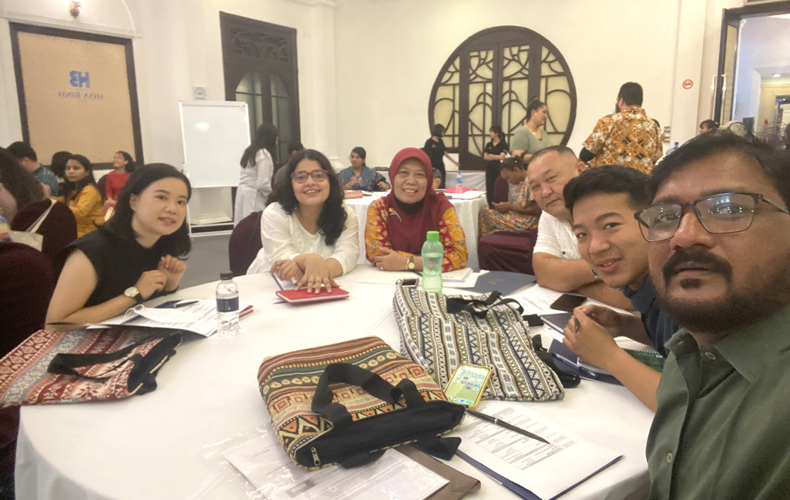
Digital Advocacy
In 2020 PCE launched a centralized knowledge hub/education portal with the participation of key civil society stakeholders. The portal provides legislators, policymakers, and members of civil society access to education-related data from credible governmental and non-governmental sources across the country. Website: www.pcedataportal.org
Let's Talk Education Season 1 | Let's Talk Education Season 2 | ![]()
![]()
![]()
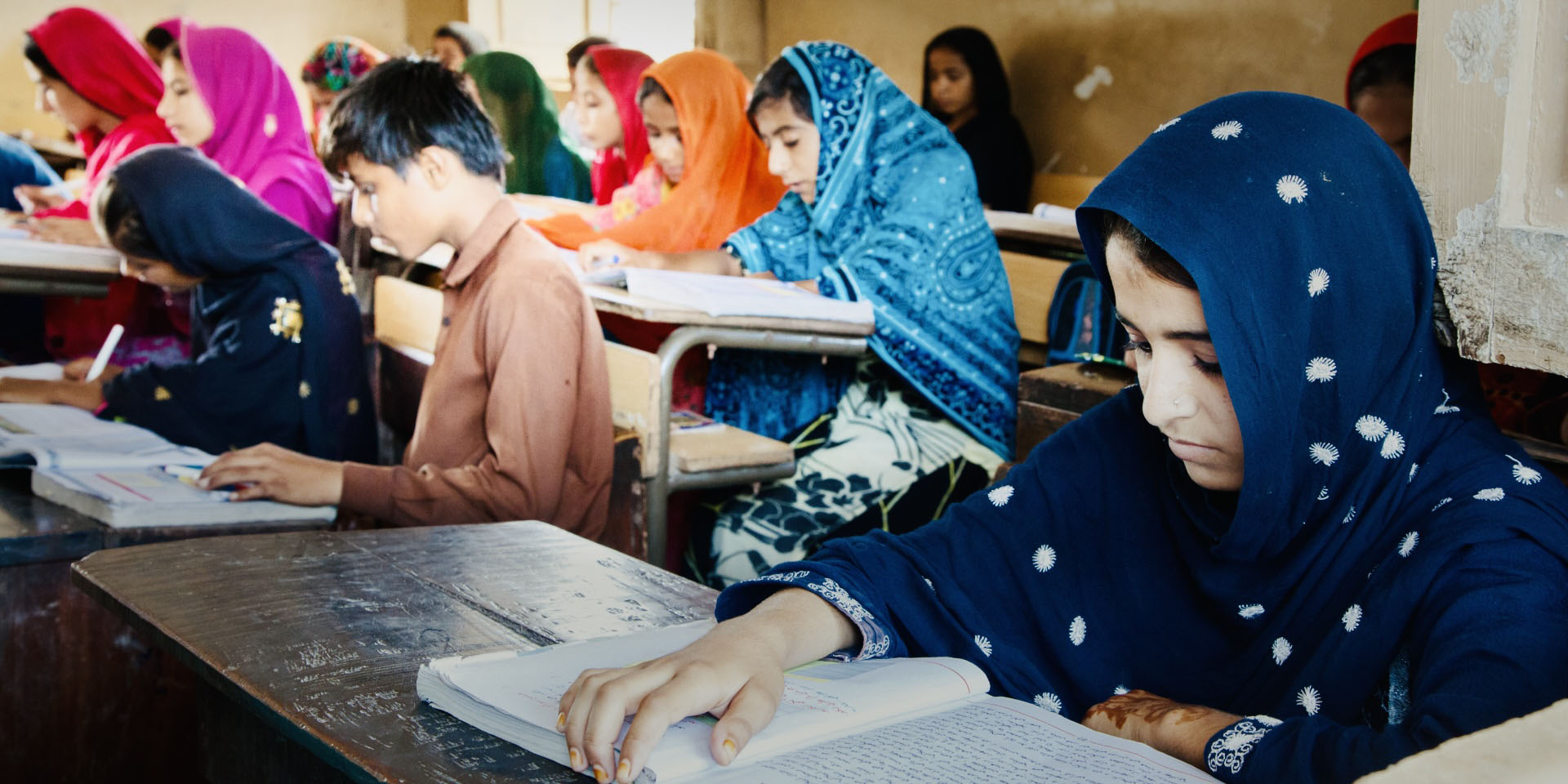
Digital Advocacy
As part of its advocacy, PCE is actively amplifying citizens’ voices through digital media tools such as webinars, podcasts, digital art, blogging, tweeting, and SMS campaigns to disseminate key data and advocacy asks.
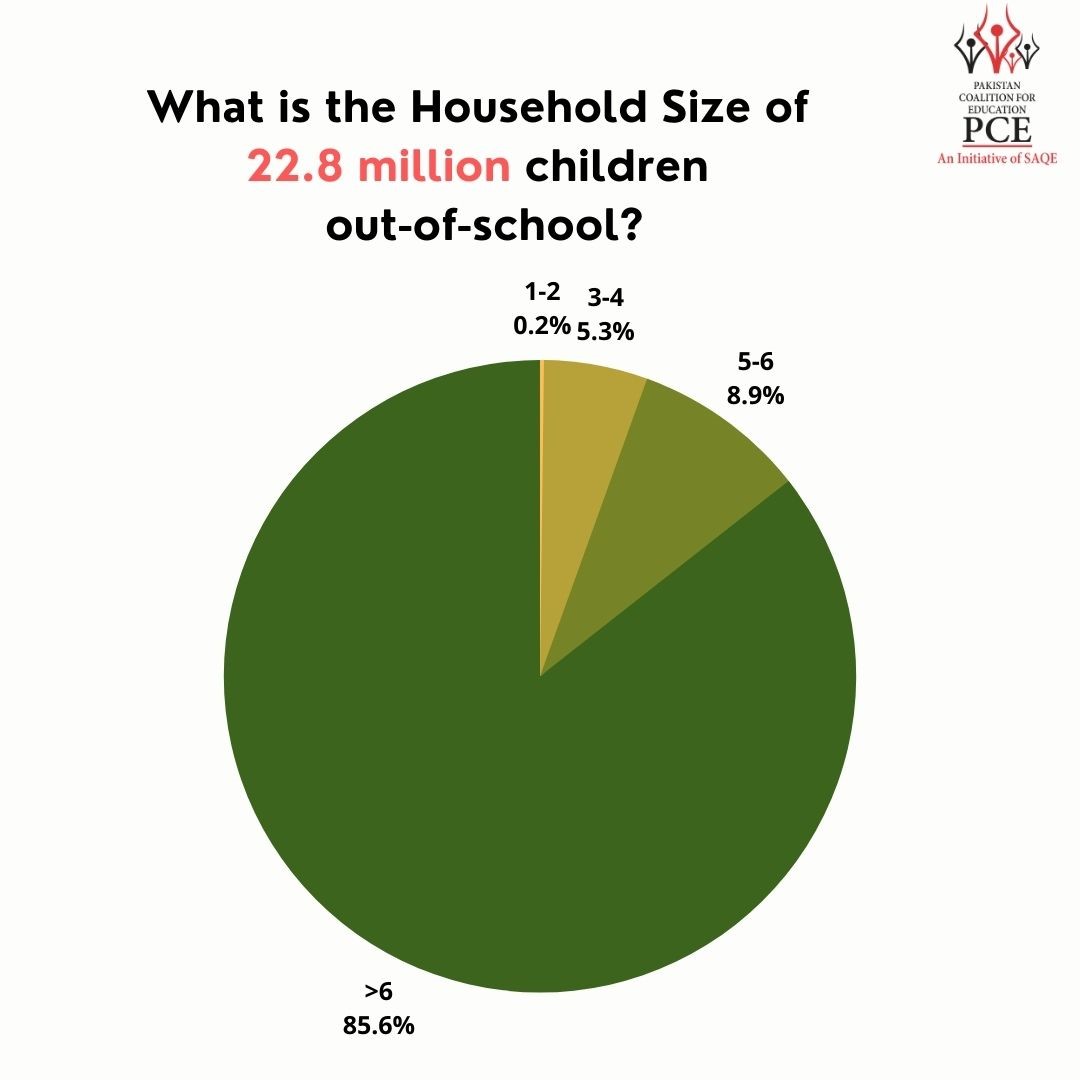
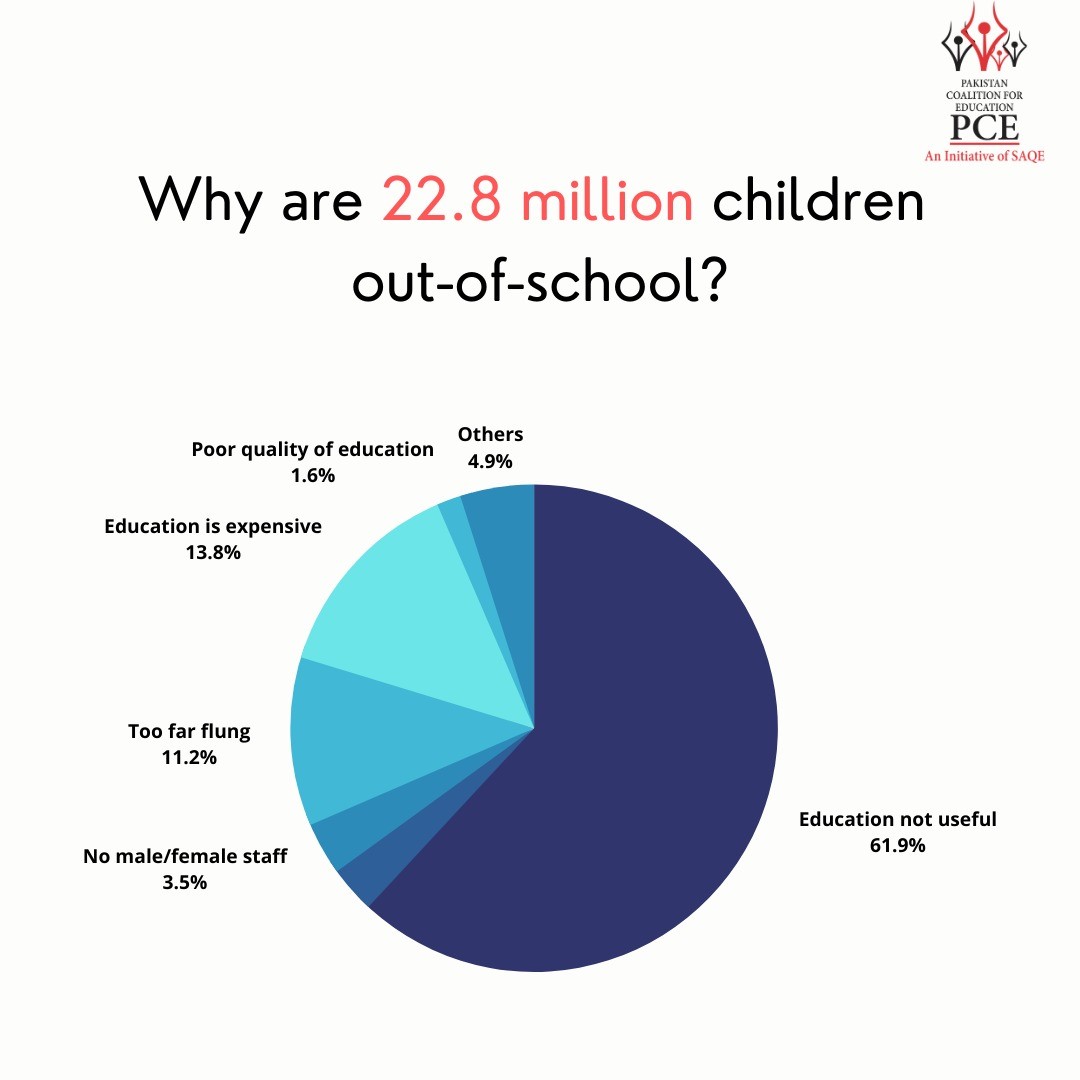
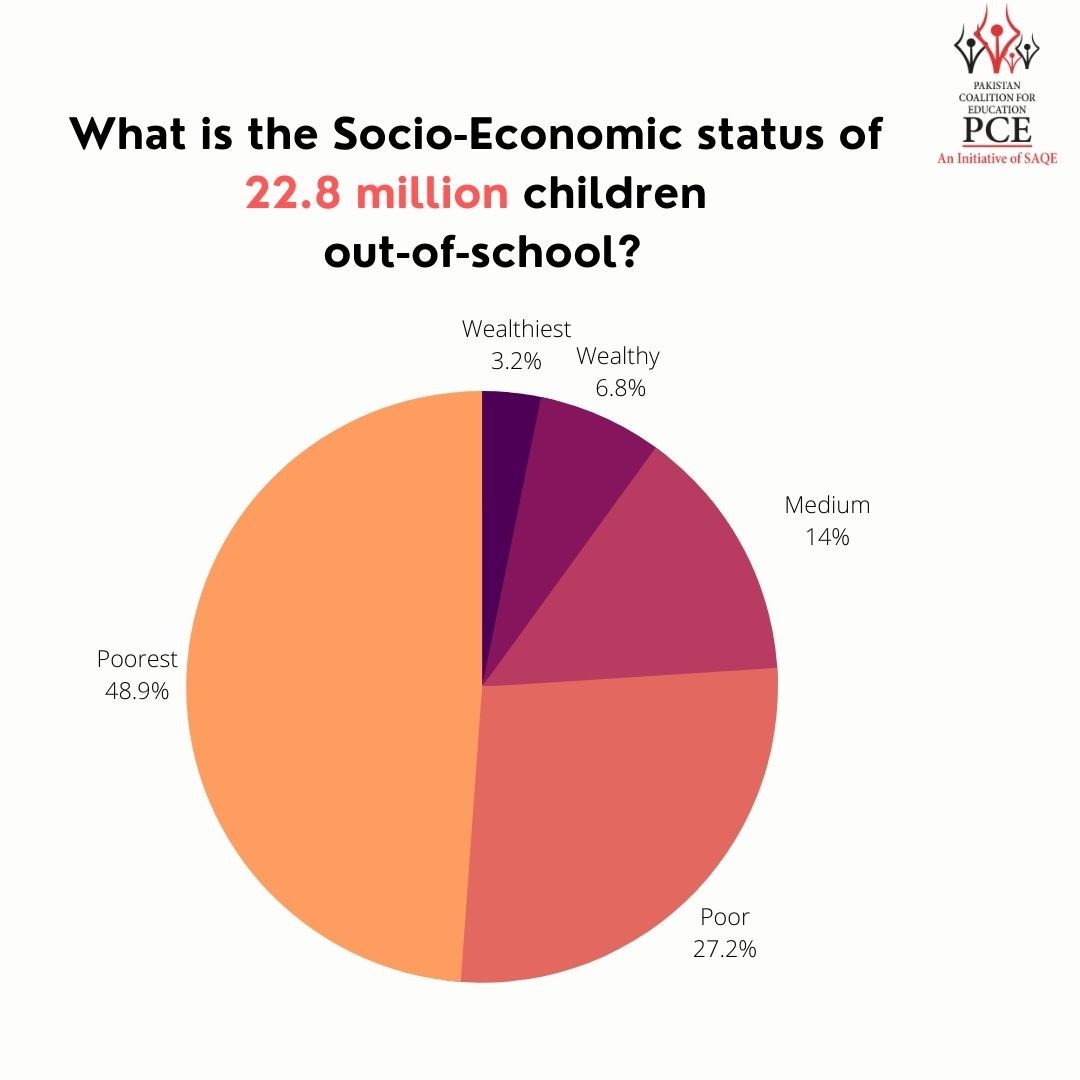
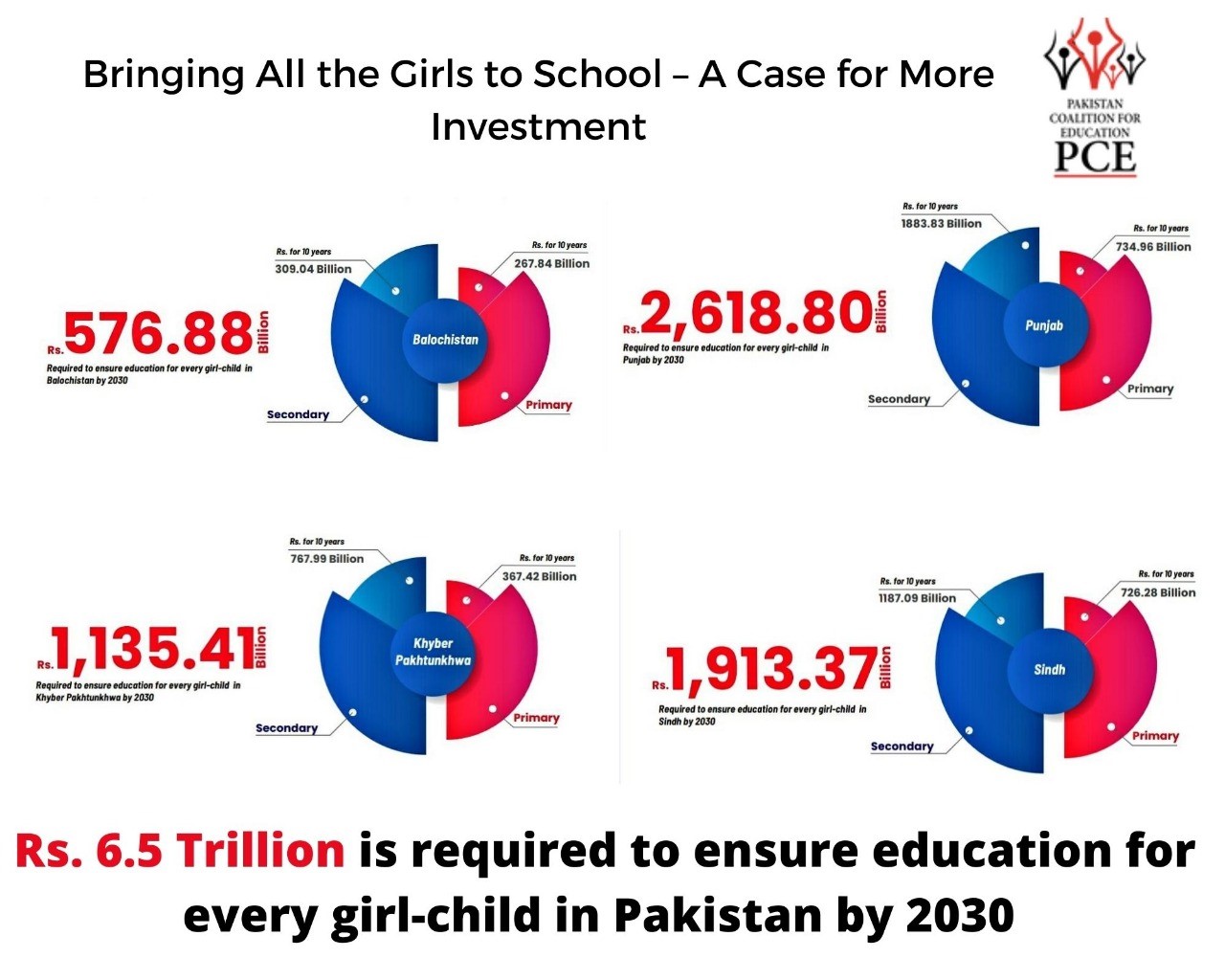
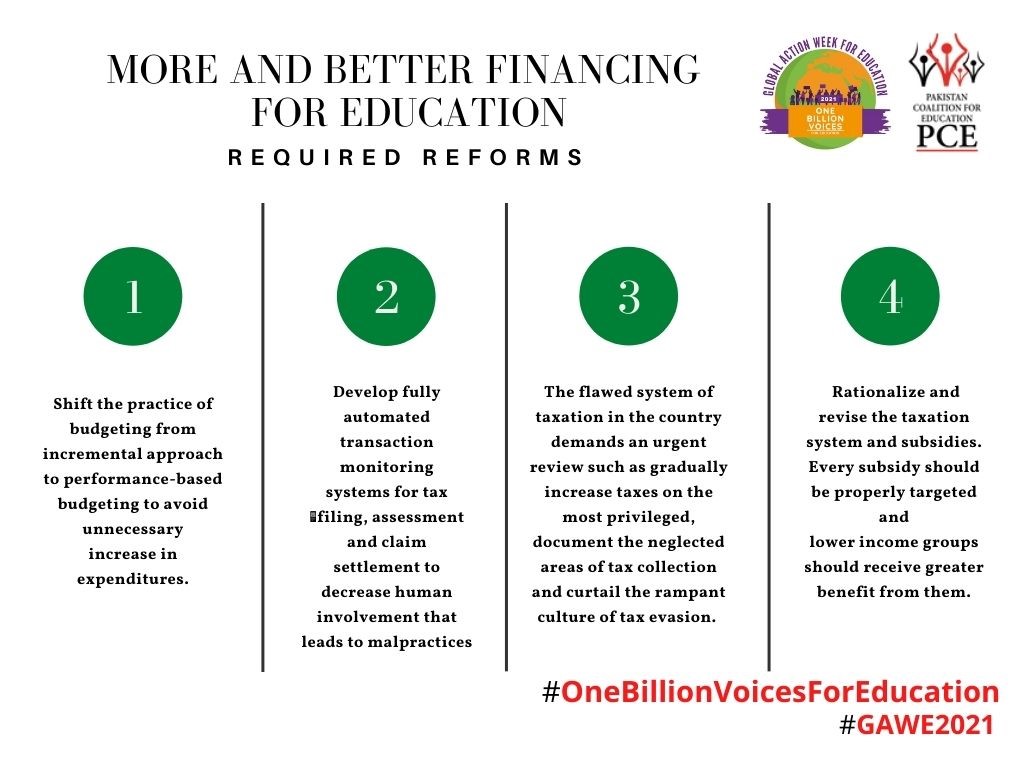
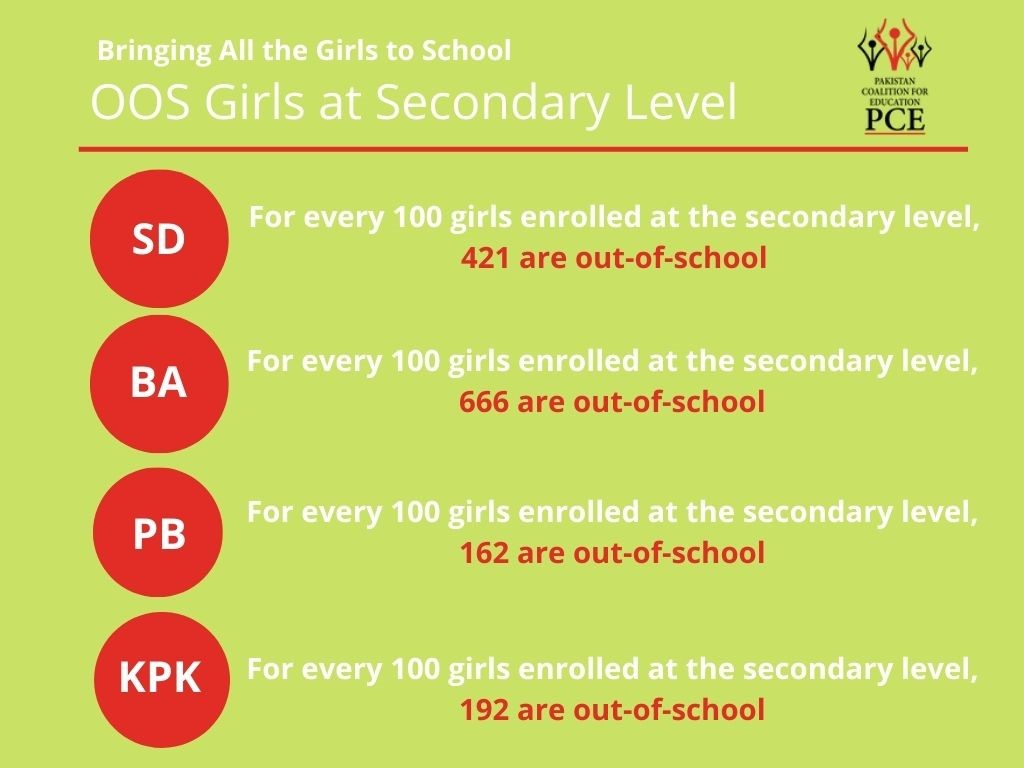
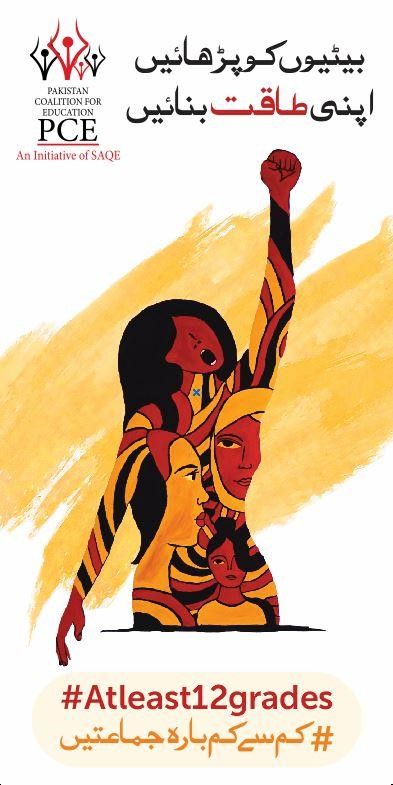
Campaign on Girls' Education
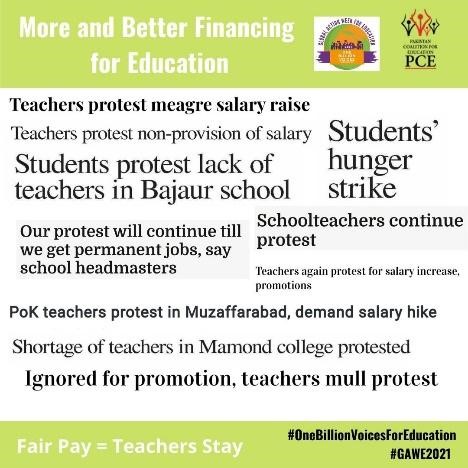
Campaign on Education Financing
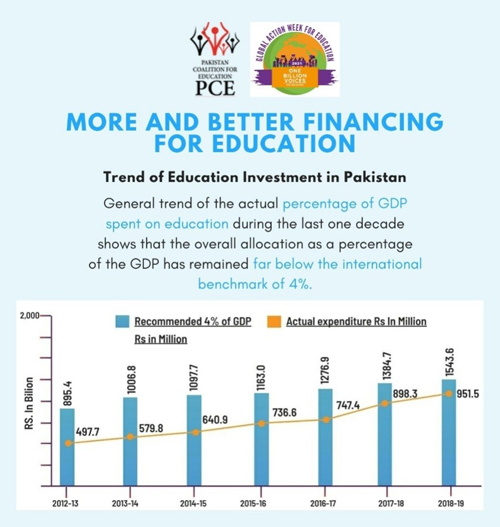
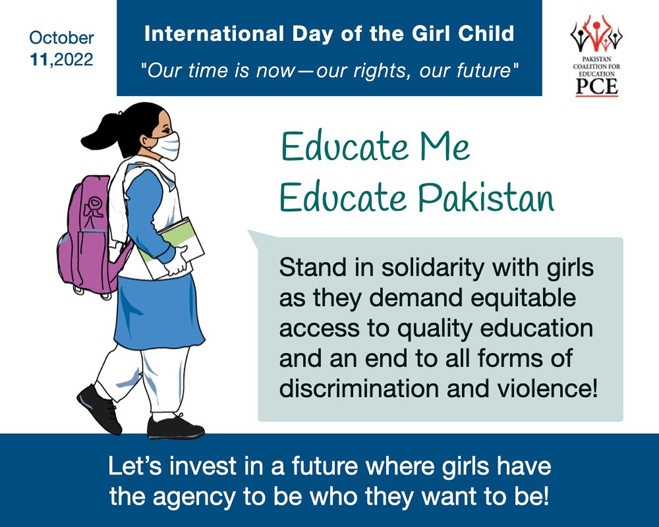
Publications
At the national and sub-national levels, PCE regularly conducts research to understand and address data gaps in girls’ education and education financing. In the prelude to the HLPF, PCE also produces a Civil Society Spotlight Report on SDG 4, highlighting the need to embed SDG 4 in plans and policies for all SDGs, and sharing key demands and recommendations for transforming education systems.

Pakistan Civil Society Spotlight Report on SDG 4 for HLPF 2022
As of 23 June 2022, Pakistan has reported 1.53 million cases of COVID-19 with more than 30,000 deaths.1 Since mid-June 2022, as Pakistan grapples with BA.5, a new coronavirus variant, fears of a sixth wave of the novel coronavirus have heightened.2 Combined with the recent political debacle as well as the ongoing economic turmoil, including the International Monetary Fund (IMF) conditionalities dictating record-high petroleum prices in the country, Pakistan is beset with varied challenges and tasked with the dilemma of working towards the Sustainable Development Goal (SDG) commitments while undergoing a severe fiscal crisis.
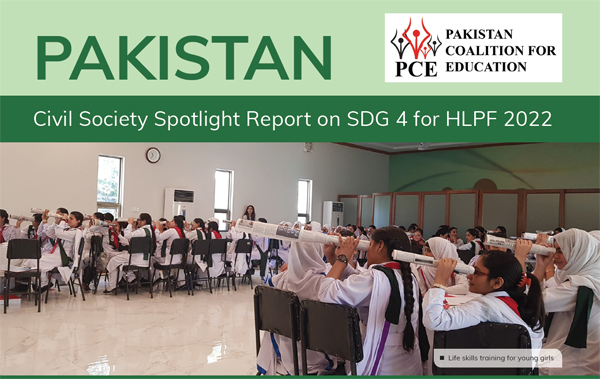
Bringing All the Girls to School
It goes without saying that education plays a fundamental role in the social and economic uplift of a society. Not only is it closely linked to poverty eradication, and accelerated economic growth but it also contributes towards reducing income inequality, greater social enrichment and inclusion and enhanced welfare. Unfortunately, during its existence spanning over seven decades, Pakistan has consistently struggled to ensure that its children attend, stay and learn in schools. While the last decade or so has seen the country make some significant improvements in this field, especially in terms of enrollment, the fact that 22.8 million children – majority of whom are girls – continue to be deprived of education is a perturbing testament of the country’s overall gloomy education landscape.
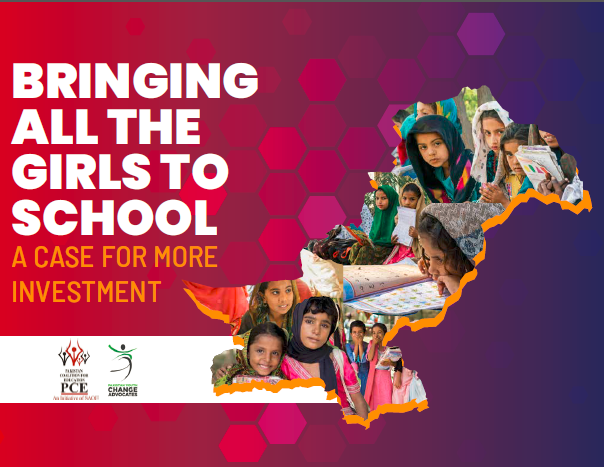
Key Messages and Recommendations
| 1 | All consultations and policy-making processes on education response should be inclusive in engaging all relevant stakeholders, including parents, teachers, learners, CSOs, teachers’ associations and community members. |
| 2 | Disaster risk management specific to the education system should be a priority area to increase the resilience of the education system. |
| 3 | Enhance curriculum across educational institutions (formal and non-formal) to ensure that students gain climate education, foundation skills, transferable skills and technical and vocational skills for decent work. |
| 4 | Prioritize action to enroll out-of-school learners, particularly girls and those from marginalized groups, by designing equity-focused plans that cater to students’ specific needs. |
| 5 | Build and upgrade more schools, from primary to secondary, and ensure the provision of transport to improve girls’ access to secondary and high schools. |
| 6 | Ensure meaningful inclusion of learners with disabilities at all levels of education by ensuring disability-friendly school premises and teacher training on disability-inclusive teaching. |
| 7 | Administer economic incentive programmes for reducing OOSCY along with comprehensive awareness programmes that address and work to change mindsets that devalue girls’ education. |
| 8 | Work to end period poverty by creating access to menstrual hygiene products and awareness in schools. |
| 9 | Incorporate meal programmes in schools, especially for young children and in areas where there is high poverty. |
| 10 | Implement and mandate teacher training programmes at all levels of education in formal, non-formal, and informal institutions. |
| 11 | Adopt a progressive taxation system to create fiscal space for higher investments in education. |
| 12 | Explore innovative financing mechanisms for financing public sector education, including calling upon corporations to invest in education as part of their CSR. |





